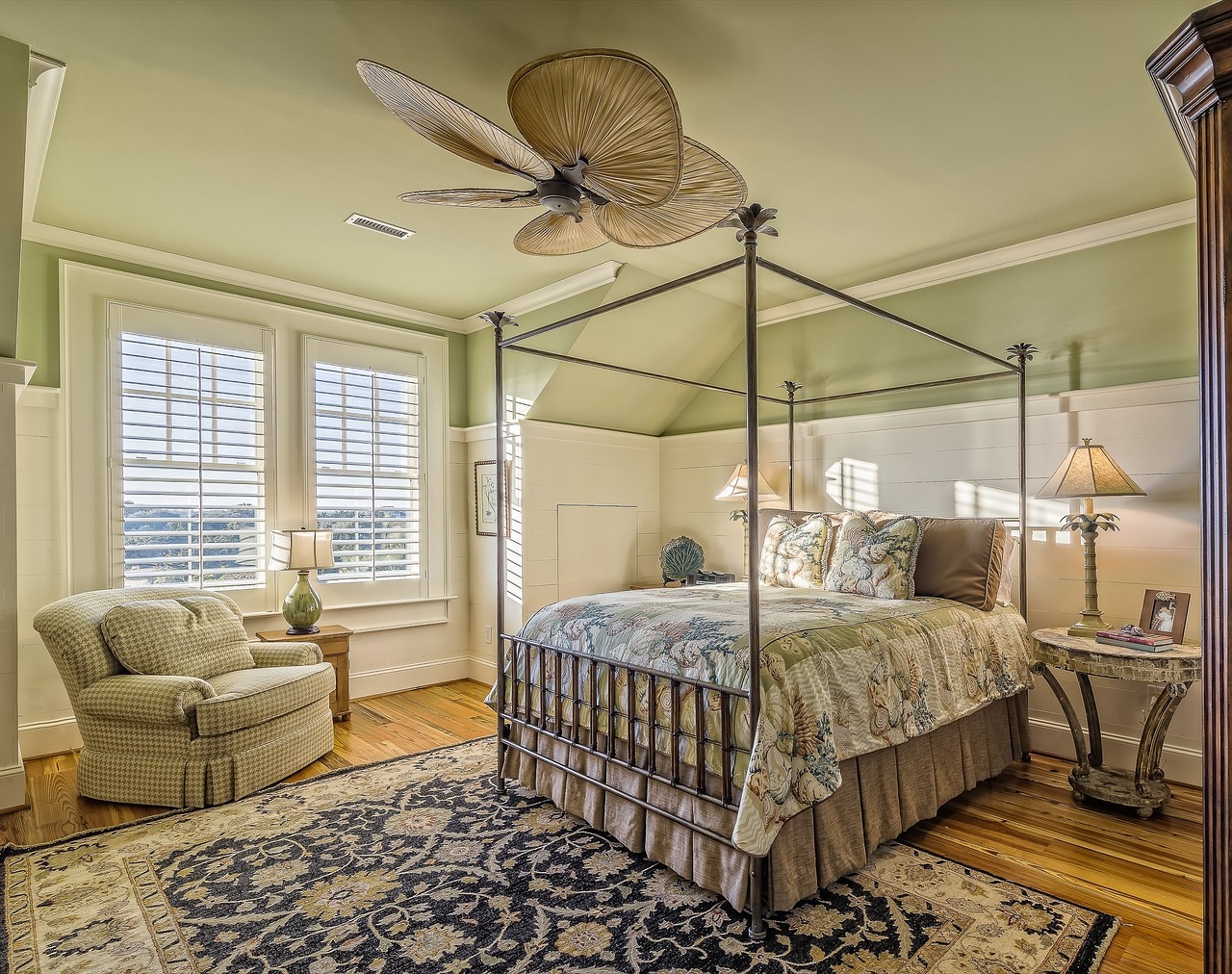Alarm Systems - Do They Enhance Home Safety
In today's world, the safety of our homes has become a top priority for many families. With the rise in crime rates and the increasing awareness of personal security, homeowners are constantly looking for effective ways to protect their sanctuaries. One of the most popular solutions to enhance home safety is the installation of alarm systems. But do they really make a difference? The answer is a resounding yes! Alarm systems not only serve as a deterrent against potential intruders but also provide peace of mind to homeowners. Imagine coming home after a long day at work, knowing that your home is monitored and protected. It's like having a loyal guard standing watch at your door, ready to alert you at the first sign of trouble. In this article, we will delve into the various types of alarm systems available, their benefits, and key considerations for homeowners looking to improve their security measures.
Understanding the different types of alarm systems available is crucial for homeowners. There are primarily three categories: wired, wireless, and smart systems. Each type has its unique features and advantages. Wired systems are often seen as more reliable, providing a stable connection without interference. However, they can be cumbersome to install and may require professional assistance. On the other hand, wireless systems offer flexibility and ease of installation, making them ideal for renters or those who prefer a DIY approach. Finally, smart alarm systems integrate seamlessly with your other smart home devices, allowing for remote monitoring and control. Imagine being able to check your home’s security from your smartphone while you’re on vacation—now that’s peace of mind!
Alarm systems provide a plethora of benefits that extend beyond just keeping intruders at bay. Firstly, they offer invaluable peace of mind. Knowing that your home is protected can significantly reduce anxiety levels, allowing you to focus on what truly matters—your family and your life. Additionally, many insurance companies offer discounts on homeowners' insurance premiums for homes equipped with alarm systems. This can lead to substantial savings over time. Moreover, a home with a security system tends to have a higher property value, making it a wise investment in the long run. After all, who wouldn’t want to live in a neighborhood known for its safety?
Research consistently shows that homes with alarm systems are less likely to be targeted by burglars. This highlights the importance of visible security measures in deterring criminal activity. A well-placed security sign or camera can act as a formidable barrier against would-be intruders. Think of it this way: if you were a burglar, would you rather attempt to break into a house with an alarm system or one without? The choice seems pretty clear!
The visibility of an alarm system can greatly impact its effectiveness. Visible systems, such as outdoor cameras and alarm signs, may deter intruders simply by being present. On the other hand, hidden systems, like discreet motion detectors, can provide a layer of surprise protection when needed. It’s akin to setting a trap; the intruder thinks they’re in the clear, only to be caught off guard by an unexpected security measure. A combination of both visible and hidden systems can create a robust defense strategy.
Alarm systems not only protect individual homes but can also contribute to overall community safety. Neighborhoods with high alarm system penetration often experience reduced crime rates. When multiple homes are secured, it sends a clear message to potential criminals that the area is not an easy target. This collective approach to safety fosters a sense of community and encourages residents to look out for one another. It’s like having a neighborhood watch, but with the added benefit of technology!
Many modern alarm systems integrate seamlessly with smart home devices, allowing homeowners to monitor and control their security systems remotely. This added convenience means you can check your home’s status from anywhere, whether you’re at work or on vacation. Imagine receiving an alert on your phone about suspicious activity at your front door while you’re miles away—being able to view the live feed from your security camera can help you decide whether to call the authorities or simply monitor the situation. The integration of smart technology into alarm systems truly elevates home security to a whole new level.
When selecting the right alarm system, homeowners should evaluate several factors, including budget, installation requirements, and monitoring options. It’s essential to find a system that fits your unique needs without breaking the bank. Take the time to research different brands and models, and consider what features are most important to you. Are you looking for a system that offers professional monitoring, or do you prefer the flexibility of self-monitoring through a smartphone app? Each option has its pros and cons, and understanding them will help you make an informed decision.
Homeowners can choose between professional installation services or DIY options when setting up their alarm systems. Professional installation often ensures that the system is set up correctly and functions optimally, but it may come with additional costs. On the flip side, DIY installation can save money and provides a sense of accomplishment, but it requires some technical know-how. Ultimately, the choice depends on your comfort level with technology and your budget.
Alarm systems come with various monitoring options, including self-monitoring via smartphone apps or professional monitoring services. Self-monitoring gives you the flexibility to keep an eye on your home without ongoing fees, while professional services offer peace of mind knowing that trained professionals are watching over your property 24/7. Consider your lifestyle and preferences when choosing a monitoring option that works best for you.
- What is the average cost of an alarm system? The cost can vary widely based on the type of system and features, typically ranging from a few hundred to several thousand dollars.
- Do alarm systems require a contract? Many alarm companies offer month-to-month contracts, but some may require longer commitments.
- Can I install an alarm system myself? Yes, many systems are designed for DIY installation, but professional installation is also available for those who prefer it.
- What happens if the alarm goes off? Most systems will alert you and/or a monitoring service, who can then take appropriate action, such as contacting the authorities.

Types of Alarm Systems
This article explores the effectiveness of alarm systems in improving home safety, examining various types, benefits, and considerations for homeowners looking to enhance their security measures.
When it comes to securing your home, understanding the different types of alarm systems available is crucial. Each type offers unique features and benefits tailored to various needs and preferences. The main categories include wired, wireless, and smart systems.
Wired alarm systems are typically installed during the construction of a home or during major renovations. They involve running wires throughout the structure, connecting sensors and alarms to a central control panel. One significant advantage of wired systems is their reliability; they are less susceptible to interference and signal loss. However, installation can be labor-intensive and costly, making them less appealing for existing homes.
On the other hand, wireless alarm systems have gained popularity due to their ease of installation and flexibility. These systems use radio signals to communicate between components, which means no messy wires running through your walls. Homeowners can easily add or remove sensors as needed, making it a great option for those who like to customize their security setup. However, it's essential to consider that wireless systems can sometimes be vulnerable to interference from other electronic devices.
Finally, we have smart alarm systems, which integrate with your home’s existing smart technology. These systems can be controlled remotely via smartphone apps, allowing homeowners to monitor their property from anywhere. Imagine being able to check your home’s security while lounging on a beach thousands of miles away! Smart systems often include features like video surveillance, motion detection, and even alerts sent directly to your phone. While they offer convenience and enhanced functionality, they also require a reliable internet connection to operate effectively.
In summary, the choice between wired, wireless, and smart alarm systems depends on your specific needs, budget, and lifestyle. It’s essential to weigh the pros and cons of each type to determine which system aligns best with your security goals. Below is a quick comparison table to help clarify these differences:
| Type | Advantages | Disadvantages |
|---|---|---|
| Wired |
|
|
| Wireless |
|
|
| Smart |
|
|
Ultimately, the right alarm system can significantly enhance your home’s safety and give you peace of mind. By understanding the types available, you can make an informed decision that best suits your lifestyle and security needs.
Alarm systems offer numerous benefits beyond security, such as peace of mind, potential insurance discounts, and increased property value, making them a worthwhile investment for homeowners.
Research shows that homes with alarm systems are less likely to be targeted by burglars, highlighting the importance of visible security measures in deterring criminal activity.
The visibility of an alarm system can impact its effectiveness; visible systems may deter intruders, while hidden systems can provide surprise protection when needed.
Alarm systems not only protect individual homes but can also contribute to overall community safety by reducing crime rates in neighborhoods with high alarm system penetration.
Many modern alarm systems integrate seamlessly with smart home devices, allowing homeowners to monitor and control their security systems remotely for added convenience and safety.
Selecting the right alarm system involves evaluating factors such as budget, installation requirements, and monitoring options to ensure it meets the homeowner's unique needs.
Homeowners can choose between professional installation services or DIY options, each with its pros and cons, affecting the overall effectiveness and reliability of the alarm system.
Alarm systems can offer various monitoring options, including self-monitoring via smartphone apps or professional monitoring services, providing flexibility based on homeowner preferences and lifestyle.
Q: Do alarm systems really deter burglars?
A: Yes! Studies have shown that homes with visible alarm systems are less likely to be targeted by burglars.
Q: Can I install an alarm system myself?
A: Absolutely! Many wireless and smart systems are designed for easy DIY installation.
Q: What happens if I forget to turn on my alarm?
A: Most modern systems can send alerts to your smartphone, reminding you to activate them.
Q: Are there ongoing costs associated with alarm systems?
A: Yes, you may incur monitoring fees or maintenance costs, depending on the system you choose.

Benefits of Alarm Systems
When it comes to enhancing the safety of your home, alarm systems offer a myriad of benefits that go far beyond just warding off intruders. Imagine having a protective shield around your home, one that not only alerts you to potential dangers but also brings a sense of peace and security to your everyday life. It's like having a trusted guardian watching over your family and belongings, ensuring that you can sleep soundly at night without worrying about what might happen while you’re away.
One of the most significant advantages of installing an alarm system is the peace of mind it provides. Knowing that your home is equipped with a reliable security system allows you to focus on what truly matters—spending quality time with your family, enjoying your hobbies, or simply relaxing after a long day. This peace of mind is invaluable; it’s the feeling that you can go about your daily activities without constantly glancing over your shoulder.
In addition to emotional benefits, alarm systems can also lead to financial perks. Many insurance companies offer discounts on homeowners' insurance premiums for homes equipped with alarm systems. This means that not only are you investing in your safety, but you could also be saving money in the long run. It’s a win-win situation that makes the initial investment in an alarm system even more appealing. To illustrate this, consider the following table:
| Alarm System Type | Potential Insurance Discount |
|---|---|
| Basic Wired System | 5-10% |
| Wireless System | 10-15% |
| Smart Home Integrated System | 15-20% |
Moreover, an alarm system can significantly increase the value of your property. In today’s real estate market, potential buyers are increasingly looking for homes that come equipped with modern security features. An alarm system can make your property stand out, appealing to buyers who prioritize safety. Think of it as adding an extra layer of desirability to your home, much like a beautifully landscaped garden or an updated kitchen.
Another crucial benefit is the deterrent effect alarm systems have on crime. Studies have shown that homes with visible security systems are less likely to be targeted by burglars. It's akin to putting up a "Beware of Dog" sign—just the presence of a security system can make potential intruders think twice. A well-placed security camera or a yard sign from your alarm company can serve as a powerful deterrent, keeping your home safer simply by being visible.
However, the effectiveness of an alarm system can also depend on whether it is visible or hidden. Visible systems, such as outdoor cameras and yard signs, can discourage would-be thieves, while hidden systems can provide an element of surprise when an intrusion occurs. This duality allows homeowners to tailor their security approach based on their specific needs and preferences.
Lastly, let’s not forget the broader impact that alarm systems can have on a community. When multiple homes in a neighborhood are equipped with alarm systems, it contributes to a safer environment overall. Criminals are less likely to target areas where they know homes are protected. This collective security creates a ripple effect, enhancing the safety of the entire community.
In summary, investing in an alarm system is not just about protecting your home; it’s about enhancing your quality of life, saving money, increasing property value, deterring crime, and even contributing to the safety of your neighborhood. It’s a multifaceted investment that pays off in more ways than one, making it a wise choice for any homeowner.
- Do alarm systems really deter burglars? Yes, studies show that homes with visible alarm systems are significantly less likely to be targeted.
- How much can I save on insurance with an alarm system? Discounts typically range from 5% to 20%, depending on the type of system you install.
- Can I install an alarm system myself? Yes, many systems offer DIY installation options, but professional installation can ensure optimal performance.
- What are the best types of alarm systems? The best type depends on your specific needs, but wired, wireless, and smart systems all have their advantages.

Deterrent Effect on Crime
When it comes to home security, one of the most compelling reasons to invest in an alarm system is its . Numerous studies have shown that homes equipped with alarm systems are significantly less likely to be targeted by burglars. Think of it this way: if a thief is scanning a neighborhood for potential targets, a house with visible security measures is like a big neon sign saying, “Keep Out!” This is not just a theory; it’s backed by research. In fact, a study conducted by the University of North Carolina found that nearly 60% of burglars would avoid a home with an alarm system altogether. It’s a simple yet powerful concept—visibility equals deterrence.
Moreover, the mere presence of an alarm system can create a ripple effect throughout a neighborhood. When one house is protected, it can lead to a collective sense of security among neighbors. Criminals often prefer to operate in areas where they feel confident they will not be caught. Hence, neighborhoods with a high concentration of alarm systems tend to experience lower crime rates. It’s like a community-wide shield that makes it harder for criminals to do their dirty work.
However, it’s essential to consider the visibility of your alarm system. Homes with prominently displayed security signs and stickers can act as a significant deterrent. In contrast, hidden systems may not provide the same level of deterrence but can offer surprise protection when an intruder does attempt to break in. This duality can be likened to having a guard dog: the sight of it alone can scare off potential intruders, but if they do enter, the surprise of an alarm going off can catch them off guard.
In addition, alarm systems can be integrated with other security measures, such as outdoor lighting and surveillance cameras, to enhance their effectiveness. For instance, a well-lit yard combined with an alarm system can create an uninviting atmosphere for criminals. They’re less likely to approach a home where they can be easily seen and heard. The combination of these elements can significantly increase the overall security posture of your home.
Ultimately, investing in an alarm system not only protects your property but also contributes to the safety of your entire community. By reducing the likelihood of crime in your immediate area, you’re not just safeguarding your home; you’re helping to create a safer environment for everyone. The choice is clear: a home with an alarm system is not just a house; it’s a fortress against crime.
- Do alarm systems really deter burglars? Yes, studies show that most burglars will avoid homes with visible alarm systems.
- What types of alarm systems are most effective? Both visible and well-integrated systems can be effective, depending on your neighborhood and personal preferences.
- How can I make my alarm system more effective? Combine it with outdoor lighting, surveillance cameras, and neighborhood watch programs for enhanced security.

Visible vs. Hidden Systems
When it comes to alarm systems, one of the most intriguing debates is whether to go for visible or hidden systems. Each option has its unique advantages and can significantly impact your home's security. Think of it like choosing between a bright neon sign that says "I have an alarm!" and a stealthy ninja that quietly watches over your property. Both can be effective, but their approaches differ dramatically.
Visible systems, such as those with external cameras or yard signs, act as a deterrent to potential intruders. The mere sight of an alarm system can make a burglar think twice before attempting to break in. Studies have shown that homes equipped with visible security measures are less likely to be targeted. It’s like putting up a "Beware of Dog" sign when you don’t even have a dog—just the threat of a guard can keep trouble at bay!
On the other hand, hidden systems offer a different kind of protection. These are the systems that blend into your home environment, making them less noticeable to outsiders. Imagine having a secret weapon tucked away, ready to spring into action when needed. Hidden systems can catch intruders off guard, providing a surprise element that can be crucial in a break-in situation. They’re like the silent guardian, always watching but never drawing attention to themselves.
Ultimately, the choice between visible and hidden systems depends on your personal preferences and specific security needs. Some homeowners might feel more secure with the obvious presence of an alarm system, while others may prefer the stealthy approach. Here’s a quick comparison to help you decide:
| Feature | Visible Systems | Hidden Systems |
|---|---|---|
| Deterrent Effect | High | Medium |
| Surprise Element | Low | High |
| Installation Complexity | Moderate | Variable |
| Cost | Generally higher | Can vary greatly |
| Maintenance | Regular checks needed | Less frequent checks |
In conclusion, whether you opt for a visible or hidden alarm system, the most important thing is that you feel secure in your home. Consider your lifestyle, your neighborhood, and the specific threats you might face. After all, the goal is to create a safe haven for you and your loved ones. So, which side are you leaning towards? The flashy deterrent or the stealthy protector?
- What is the best type of alarm system for my home? The best type depends on your specific needs, budget, and preferences. Consider factors like visibility, installation, and monitoring options.
- Can I install an alarm system myself? Yes, many alarm systems offer DIY installation options. However, professional installation can ensure everything is set up correctly.
- Do alarm systems really deter burglars? Yes, studies indicate that visible alarm systems can significantly reduce the likelihood of a break-in.
- What monitoring options are available? You can choose between self-monitoring via smartphone apps or professional monitoring services, depending on your lifestyle.

Community Impact
When we think about alarm systems, it's easy to focus solely on how they protect our individual homes. However, their impact goes far beyond just our front doors. Imagine living in a neighborhood where everyone has a security system in place—it's like creating a fortress of safety! Studies have shown that the presence of alarm systems can significantly reduce crime rates in communities. This phenomenon occurs because potential criminals are often deterred by the thought of encountering multiple security measures as they scout for targets.
In fact, neighborhoods that invest in alarm systems often see a ripple effect. When one house is equipped with an alarm, it not only protects that home but also sends a clear message to surrounding properties: this area is serious about security. This sense of collective vigilance can create a safer environment for everyone. Just think about it—if you were a burglar, would you prefer to target a home with an obvious alarm system or one that looks like an easy mark? The answer is clear!
Moreover, communities with high alarm system penetration tend to foster a sense of community engagement. Residents become more aware of their surroundings and often share information about suspicious activities, creating a tighter-knit neighborhood. This camaraderie can lead to organized neighborhood watch programs, where residents actively look out for each other, enhancing overall safety.
To illustrate this point, consider the following table that highlights the relationship between alarm system prevalence and crime rates in various neighborhoods:
| Neighborhood | Alarm System Prevalence (%) | Crime Rate (Incidents per 1000 residents) |
|---|---|---|
| Maplewood | 75% | 2.5 |
| Oak Hill | 50% | 5.0 |
| Sunnyvale | 30% | 8.0 |
This table clearly shows that as the prevalence of alarm systems increases, crime rates tend to decrease. It's a powerful reminder that when we invest in our own security, we're also contributing to the safety of our neighbors. So, the next time you consider installing an alarm system, remember that this decision not only protects your home but also plays a vital role in enhancing the safety of your entire community.
- How do alarm systems deter crime? Alarm systems act as a visible deterrent, making homes less appealing targets for burglars.
- Can alarm systems lower my home insurance premium? Yes, many insurance companies offer discounts for homes equipped with alarm systems.
- Are smart alarm systems worth the investment? Absolutely! They offer convenience, remote monitoring, and integration with other smart home devices.
- What’s the best type of alarm system for my home? It depends on your specific needs—consider factors like budget, installation, and monitoring preferences.

Integration with Smart Home Technology
In today's rapidly evolving world, the concept of a smart home is no longer just a futuristic dream; it's a reality that many homeowners are embracing. The integration of alarm systems with smart home technology is like adding a turbocharger to your car—it enhances performance and provides an extra layer of convenience and security. Imagine being able to monitor your home’s security system from anywhere in the world, all from the palm of your hand. This capability is not only empowering but also provides peace of mind, knowing that your home is protected 24/7.
Smart alarm systems can connect to various devices such as smartphones, tablets, and even smartwatches, allowing homeowners to receive real-time alerts about potential security breaches. For instance, if a door sensor is triggered, you’ll get an instant notification, enabling you to take immediate action, whether that's contacting the authorities or checking your security cameras. This level of control is akin to having a personal security guard on duty, always vigilant and ready to respond.
Moreover, the integration doesn’t stop at just alarms. Many smart home systems allow for automation, meaning you can set your lights to turn on when your alarm is triggered, or even program your thermostat to adjust when you leave home. This interconnectedness not only enhances security but also contributes to energy efficiency, making your home smarter in more ways than one.
To illustrate the benefits of integrating alarm systems with smart technology, consider the following table that outlines key features:
| Feature | Benefits |
|---|---|
| Remote Monitoring | Access your alarm system from anywhere via smartphone apps. |
| Smart Notifications | Receive instant alerts for any security breaches or unusual activity. |
| Home Automation | Integrate with other smart devices for automated responses. |
| Voice Control | Use voice assistants like Alexa or Google Assistant to manage your security system. |
The convenience of controlling your alarm system through voice commands or mobile apps makes it accessible for everyone in the household. Whether you’re cooking dinner or lounging on the couch, you can easily check your security status or arm your system without lifting a finger. This level of accessibility is crucial, especially for families with children or elderly members who may need assistance.
In conclusion, the integration of alarm systems with smart home technology is more than just a trend; it's a transformative approach to home security that enhances safety, convenience, and peace of mind. As you consider your options for an alarm system, think about how these integrations can elevate your home security experience to the next level. After all, in a world where technology is constantly evolving, why should your home security remain stagnant?
- Can I integrate my existing alarm system with smart home technology? - It depends on the system. Some older models may require upgrades or replacements to connect with smart devices.
- Are smart alarm systems more expensive? - While initial costs may be higher, the long-term savings on insurance and energy efficiency can make them a worthwhile investment.
- Is it easy to use smart alarm systems? - Most systems are designed to be user-friendly, with intuitive apps and voice commands that simplify operation.
- What happens if my internet goes down? - Many smart alarm systems have backup options, such as cellular connections, to ensure continued monitoring.

Considerations When Choosing an Alarm System
Choosing the right alarm system for your home is a crucial decision that can significantly impact your safety and peace of mind. With so many options available, it can feel overwhelming. But fear not! By considering a few key factors, you can make an informed choice that suits your unique needs. First and foremost, think about your budget. Alarm systems come in a wide range of prices, and it's essential to find one that fits your financial situation without compromising on quality. Remember, investing in a reliable system is often a lot cheaper than dealing with the aftermath of a burglary.
Next, consider the installation requirements. Some systems require professional installation, while others are designed for DIY enthusiasts. If you’re handy and enjoy a bit of a challenge, a DIY system might be right up your alley. However, if you prefer a hassle-free experience, hiring a professional can save you time and ensure that everything is set up correctly. Additionally, take into account the monitoring options available. Do you want to monitor your system yourself through a smartphone app, or would you prefer a professional monitoring service that keeps an eye on your home around the clock? Each option has its own set of pros and cons, so assess what works best for your lifestyle.
Another aspect to ponder is the features that come with the alarm system. For instance, some systems offer smart home integration, allowing you to control your security features remotely. This can be incredibly convenient if you’re frequently on the go. You might also want to look for systems that include additional sensors, such as motion detectors or glass break sensors, which can enhance your security even further. When weighing these features, think about what will provide you with the most peace of mind.
To help you visualize the differences in alarm systems, here’s a quick comparison table:
| Feature | DIY Systems | Professional Systems |
|---|---|---|
| Installation | Self-installed | Installed by professionals |
| Cost | Generally lower | Higher initial cost |
| Monitoring | Self-monitoring | 24/7 professional monitoring |
| Customization | Highly customizable | Limited customization |
Lastly, don’t overlook the reputation of the alarm system provider. Research customer reviews and ratings to gauge the reliability and effectiveness of their systems. A company with a solid track record is more likely to provide the support you need in case of an emergency. After all, the last thing you want is to find out that your alarm system isn’t up to par when you need it the most.
Q: How much should I expect to pay for a good alarm system?
A: Prices can vary significantly based on features and monitoring options, but a basic system typically starts around $200, while more advanced systems can cost upwards of $1,000.
Q: Can I install an alarm system myself?
A: Yes, many modern alarm systems are designed for DIY installation, making it easy for homeowners to set them up without professional help.
Q: What happens if I forget to turn on my alarm?
A: Most systems allow for remote monitoring and control, so you can activate the alarm from your smartphone even if you’re away from home.
Q: Do alarm systems really deter burglars?
A: Yes! Studies have shown that homes with visible alarm systems are less likely to be targeted by criminals, making them an effective deterrent.

Professional vs. DIY Installation
When it comes to installing an alarm system, homeowners often find themselves at a crossroads: should they hire a professional or take the DIY route? Both options have their own unique advantages and challenges, making the decision a bit of a puzzle. If you've ever tried assembling a piece of IKEA furniture, you know that sometimes, following instructions can lead to unexpected results. The same applies when setting up your home security system.
Choosing professional installation means you’re putting your trust in experts who know the ins and outs of alarm systems. These technicians typically have extensive training and experience, ensuring that each component is installed correctly and functions optimally. Imagine having a skilled chef prepare a gourmet meal for you versus trying to whip up a soufflé on your own—there’s a noticeable difference in quality! Plus, many professional services offer warranties and ongoing support, which can provide peace of mind.
On the other hand, opting for a DIY installation can be appealing for those who love a hands-on approach. It often comes with a lower price tag, and let’s be honest, there’s a certain satisfaction that comes from completing a project yourself. However, it does require a bit of technical know-how and a willingness to read through manuals, which can sometimes feel like deciphering ancient hieroglyphics. If you’re tech-savvy and enjoy tinkering, this could be a rewarding experience. Just be prepared for potential hiccups along the way!
To help you weigh your options, here’s a quick comparison:
| Factor | Professional Installation | DIY Installation |
|---|---|---|
| Cost | Higher initial investment | Lower upfront costs |
| Expertise | Installed by trained professionals | Requires self-guided knowledge |
| Time | Typically faster with a team | Time-consuming, depending on skill level |
| Support | Ongoing support and warranty | Limited to self-research and troubleshooting |
Ultimately, the choice between professional and DIY installation boils down to your personal preferences and circumstances. If you value convenience and reliability, professional installation might be the way to go. However, if you’re looking to save some cash and enjoy a little project, then rolling up your sleeves for a DIY installation could be a fun and fulfilling option. Remember, the goal is to enhance your home’s security, so choose the method that aligns best with your needs and comfort level!
- What is the average cost of professional alarm system installation? The average cost can vary widely based on the system complexity and location, but it typically ranges from $100 to $500.
- Can I install an alarm system myself? Yes, many alarm systems are designed for DIY installation, but it’s essential to follow the provided instructions carefully.
- How long does it take to install an alarm system? Professional installations usually take a few hours, while DIY installations can take several hours to a full day, depending on your skill level.
- Are there any warranties for professionally installed systems? Most professional services offer warranties, but it's important to check the terms and conditions.

Monitoring Options
When it comes to protecting your home, the available for alarm systems can significantly influence your overall security strategy. Homeowners today are faced with a variety of choices, each offering unique advantages and tailored functionalities to suit different lifestyles. You might be wondering, "What’s the best way to ensure my home is secure?" The answer lies in understanding these options and how they align with your needs.
One of the most popular choices is self-monitoring, where homeowners take the reins of their security systems. This approach typically involves using a smartphone app that allows you to receive alerts and notifications directly. Imagine being at work, and your phone buzzes with an alert about unusual activity at home. You can instantly check the live feed from your cameras or sensors, giving you a sense of control and peace of mind. However, self-monitoring requires you to be proactive. Are you always available to respond to alerts? If life gets busy, you might miss critical notifications.
On the other hand, there’s the option of professional monitoring. This service usually comes with a subscription fee, but it offers a layer of security that self-monitoring simply can't match. With professional monitoring, trained personnel watch over your home 24/7. If an alarm is triggered, they can quickly assess the situation and contact the authorities if needed. It’s like having a security guard on duty at all times! This option is particularly appealing for those who travel frequently or have a busy schedule. Just think about it: while you’re enjoying a vacation, a professional monitoring service is keeping an eye on your home, ensuring everything remains safe.
To help you visualize the differences, here’s a quick comparison:
| Feature | Self-Monitoring | Professional Monitoring |
|---|---|---|
| Cost | Generally lower, often no monthly fees | Monthly subscription fees apply |
| Response Time | Dependent on homeowner's availability | Immediate response from trained professionals |
| Control | Complete control over monitoring | Less direct control, but more security |
| Ease of Use | Requires active engagement | Hands-off approach |
Ultimately, the choice between self-monitoring and professional monitoring boils down to your personal preferences and lifestyle. Are you someone who thrives on being hands-on, or do you prefer to delegate those responsibilities? Keep in mind that some alarm systems offer a combination of both options, allowing you to switch between self and professional monitoring as your needs change.
In conclusion, understanding your monitoring options is crucial for maximizing your alarm system's effectiveness. Whether you opt for the independence of self-monitoring or the security of professional services, ensuring your home is well-protected is what matters most. So, take a moment to evaluate what fits best with your lifestyle and peace of mind—because when it comes to home security, every second counts!
- What is the difference between self-monitoring and professional monitoring? Self-monitoring involves homeowners actively checking their security systems, while professional monitoring employs trained personnel to monitor your home continuously.
- Are there any additional costs associated with professional monitoring? Yes, professional monitoring typically requires a monthly subscription fee, which can vary based on the service provider and features included.
- Can I switch between self-monitoring and professional monitoring? Many modern alarm systems offer flexibility, allowing homeowners to switch between monitoring types based on their needs.
Frequently Asked Questions
- What types of alarm systems are available for home security?
There are several types of alarm systems available, including wired, wireless, and smart systems. Wired systems are connected through cables, while wireless systems use radio signals, offering more flexibility in installation. Smart systems integrate with other smart home devices, allowing for remote monitoring and control via smartphone apps.
- How do alarm systems enhance home security?
Alarm systems enhance home security by acting as a deterrent to potential intruders. Research indicates that homes equipped with alarm systems are less likely to be targeted for burglary. The mere presence of visible security measures can discourage criminals and provide homeowners with peace of mind.
- What are the benefits of installing an alarm system?
Besides improving security, alarm systems offer various benefits such as peace of mind, potential insurance discounts, and even an increase in property value. Homeowners can feel safer knowing their home is protected, and many insurance companies provide discounts for homes with security systems.
- Should I choose a professional installation or a DIY alarm system?
Choosing between professional installation and DIY depends on your comfort level with technology and your budget. Professional installations ensure proper setup and reliability, while DIY options can save money and offer flexibility. However, improper installation may lead to issues down the line.
- What monitoring options are available for alarm systems?
Alarm systems typically offer two main monitoring options: self-monitoring through smartphone apps and professional monitoring services. Self-monitoring allows homeowners to manage their security directly, while professional services provide 24/7 monitoring and quick response in emergencies.
- Do alarm systems really reduce crime rates in neighborhoods?
Yes, alarm systems can contribute to a decrease in crime rates within neighborhoods. When multiple homes are equipped with alarm systems, it creates a safer community, as the likelihood of successful break-ins diminishes. This collective security can lead to a more peaceful environment for everyone.
- Are hidden alarm systems effective?
Hidden alarm systems can be quite effective as they provide an element of surprise against intruders. While visible systems act as a deterrent, hidden systems can catch criminals off guard, providing protection when they least expect it. The choice between visible and hidden often depends on personal preference and security strategy.
- Can alarm systems integrate with smart home technology?
Absolutely! Many modern alarm systems are designed to integrate seamlessly with smart home technology. This allows homeowners to monitor and control their security systems remotely, providing added convenience and enhancing overall safety.



















